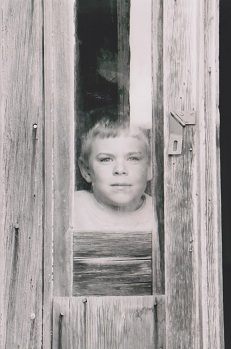The United States is different from most countries. We came of age when land was plentiful and only the limit was the western horizon. Even though we have dense pockets of populations scattered through out the country, there is the ever present option of moving to the suburbs, farm, ranch or that little town in Wyoming or Arizona. American’s have never had to rely on close knit communities for survival and support.
Distant islands of despair
With our relatively low-density population also comes detachment or close association with community, service clubs and religious affiliations. While many folks belong to a variety of groups, the total number of actual contacts with neighbors, friends and family decreases as we purposely spend more time commuting to work or nestled in the comfort of our homes. This freedom of independence, whether in a cabin, farm or suburban tract house, can also create islands of despair for individuals and families dealing with mental health issues.
Natural progression of isolation
Our housing transition from urban to isolated suburban is similar to many families in America. We started out in an apartment in a college town with lots of neighbors and community events. Upon graduation we moved up to duplex. I still remember the evening when we rode our bikes home only to be stopped by police because our neighbor was threatening to shoot his family. Next we opted for an abode close to work but away from family. Finally, with enough savings, we acquired the American dream of home ownership, still further away from family and any community connections. Our final stop has been a suburb that has great demographics (excellent schools, good home values, high median income) but is completely devoid of any community identity beyond the schools.
Decreased frequency of contacts
With each move, somewhat by design and partially by accident, we distanced ourselves from community interaction. It’s not that people can’t become isolated in a San Francisco apartment down town, but suburban and rural living means expending that much more energy to interact with neighbors, friends, family or casual acquaintances. The decreased frequency of contact increases the reluctance of your friends and family to ask the hard questions, “How are you doing?”, “Do you need help?”
Out of sight
It is difficult to break the veneer of suburban appearances with the recognition that a family member is having a difficult time with mental health issues. Unfortunately, the hidden stress can explode in violence either in the home or community. Many people have been helped with support groups, therapy and medication. But there are many people who remain out of sight or on the fringes until an incident happens.
Increasing options with barriers
These are the people and families that need our support, compassion and understanding. The Affordable Care Act will cover mental health benefits in new health insurance plans starting in 2014. But there are still barriers to accessing that care such as deductibles, coinsurance and availability. Since the American landscape of suburban and independent living will not change, we need to change.
Increasing access, no questions asked
Change will look like a greater acceptance of people with mental health challenges and, more importantly, access to support services to keep them engaged, healthy and productive. A big picture portrait would include walk-in mental health clinics, support and therapy groups meeting at local churches, libraries or community centers, and a coordinated local effort to reach out to families in crisis.
How do you measure an incident avoided?
In a political environment focused on reducing government general fund expenditures, we must recognize that dollars spent on mental healthcare yields the almost unmeasurable results of lives saved. How do you quantify that the therapy provided during the year kept a family intact, a suicide avoided or a mass shooting prevented?
A start for mental health support
Please sign the petition calling for a national sales tax on guns and ammo to support mental health services.
To the ends of increasing access to mental health services, and in light of the tragic Newtown, CT, school shootings, I have proposed that we levy a tax on the sale of guns and ammunition with the revenue to be directed at increasing mental healthcare options in our communities. While it may sound unfair to those who purchase guns and ammunition, there needs to be at least seed money for grants to expand mental health services.
I guarantee that with no action we will see more incidents of gun violence. With action, we may not be able to eliminate all the tragedies, but we will be able to avoid many.
Actions:
Sign the petition calling on the Federal or State government to tax guns and ammo.
Like the Facebook page advocating for a tax on guns and ammo to support expanded mental health services.
